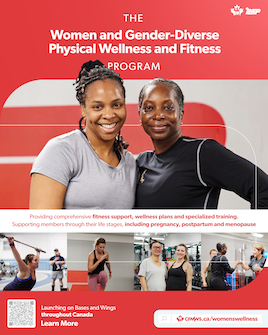CMF Kids
Participants needed for study on Canadian military adolescents’ school transition
In an effort to understand and support Canadian military adolescents’ school transition experience, a new study seeks participants.
The primary investigator and doctoral candidate at Queen’s University, Shannon Hill, grew up in a military family and is conducting the study to gather research to support Canadian military families.
American research has ultimately provided the foundation for what is known about the schooling experiences among students who are connected to military families.
FACING CHALLENGES
Military-connected students may face challenges such as curricular gaps and or redundancies, disruptions to friendships, or missing out on participation in extracurricular activities. The literature has shown that these challenges can become particularly amplified for adolescents in comparison to younger children.
While there are some challenges these adolescents face, Hill talked about the flip side and highlighted some of the positives that can be associated with frequent relocations.
“They’re able to travel, see new places, and they get to meet a lot of new people,” she commented.
NEED CANADIAN RESEARCH
Hill mentioned that these findings are coming from the American literature, which reflects a particular cultural identity. Due to the lack of research that has been conducted in Canada to date, she noted we really don’t know to what extent the American findings are representative of the experiences that Canadian military-connected adolescents are having.
“My specific study will really help provide insight into what the Canadian experience looks like and how it compares to the experiences that other military-connected adolescents are having across the globe, whether it’s in the United States or the United Kingdom,” Hill stated.
TWO PHASES
This study is broken down into three different phases.
The purpose of the first phase is to identify how the literature describes policies, programs, and practices that have been designed to support the school transitions among military-connected students across the globe.
Hill mentioned that she’s “not just looking at Canada, in phase one, but also other countries such as the United Kingdom, the United States, Australia, and New Zealand.”
SECOND PHASE
The purpose of the second phase, which is the phase that Hill is currently recruiting for, is to understand better the school transition experiences of adolescents who are living in Canadian military families.
In this phase, Hill is speaking to adolescents, parents, educators, and school health providers (e.g., occupational therapists, speech pathologists, etc.). She explained that it’s important to hear from each of these individuals to better understand their experiences.
“Often what we see is that the child experience or the child perspective gets captured through proxy. I think it’s really great that each experience and each perspective will be represented in their own light with my study.”
RECRUITING NOW
Hill is actively recruiting for phase two of her study. Individuals are asked to complete a brief demographic survey, and they are also invited to participate in an individual interview with Hill to learn more about their experience.
The interviews last around 45 minutes for adolescents and an hour to an hour and a half for the parents, educators, and school health providers. COVID has made recruitment for phase two difficult, and despite that, Hill says she’s planning to have a third phase.
“I’m hoping out of phase three will come some recommendations that I could put forward to help inform both policy and practice related to the school transition experiences among military-connected adolescents in Canada,” she explained.
Hill said this study is both timely and meaningful given the significant emphasis that’s been recently placed in Canadian policy to support military families.
DEFENCE POLICY: MILITARY FAMILIES
In 2017, the government of Canada released a new Defense Policy: Strong, Secure, Engaged. Within this policy document, Canadian military families were recognized as the strength behind the uniform.
According to Hill, it acknowledged that in addition to military personnel, military families also deserve to have access to services and supports that can help mitigate the challenges that can be associated with the military lifestyle.
In support of this, the Department of National Defense has launched various initiatives, one of which is Seamless Canada. Seamless Canada looks to better align programs and services for highly mobile military families across three sectors: healthcare, spousal employment, and child and youth education.
SIGNIFICANT RESEARCH GAP
Hill said there has been greater research advancements in Canada’s healthcare and spousal employment sectors, but there remains a significant research gap within the education sector.
As a certified teacher, Hill says her study has the potential to lay down the foundation in Canada for the education sector, as there’s still work to be done.
Hill also mentioned that, while there are currently services and supports for families who stay within Canada, it seems like services may be more focused on families who move outside of Canada.
SUPPPORT: OUTCAN vs. NATIONAL
“I’m not done data collection for phase two yet, but some of the participants have noted the different levels of services and supports that are offered to families who are staying within Canada compared with those going OUTCAN.”
Approximately 25 to 30 years ago, many military-connected children in Canada attended Department of National Defense schools. The schools were located on military bases. However, the school system no longer exists in Canada.
Children and youth growing up in military families living in Canada are now attending schools within local communities. As Hill notes, “little is known about if they have awareness of the military lifestyle and how that might impact the schooling experiences of military-connected children.”
GREW UP IN MILITARY HOME
Hill also notes having firsthand experience going through educational systems as a military-connected student as her father served in the Canadian Armed Forces.
“I know what it’s like to constantly relocate and have to start at a new school,” she commented. Hill notes that she never thought that her personal experience growing up in a military family would later impact or influence what she would do later on in life.
Hill discussed that having military families participate in studies like this not only ensures that researchers, policymakers, and decision-makers have a better understanding of what the current experience looks like for military families, but having them participate also allows for policies and practices to be implemented in response to and reflective of the ever-changing needs and experiences of military families.
CRITICAL MILITARY FAMILIES BE HEARD
“I think it’s so critical that military families are given a platform or opportunity to have their voices and perspectives heard and considered when there’s decisions being made about policy and practice. It’s critical that they are comfortable and that they can contribute to research. I think just knowing that someone cares and is willing to listen to what they’ve experienced is important.”
If you are interested in learning more about Hill’s study or are interested in participating, you can contact her by email here.






















